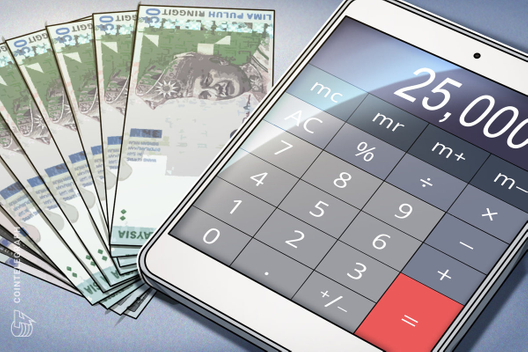Gold industry taps blockchain for supply chain management and fraud prevention
LBMA CEO Ruth Crowell said the new blockchain-based initiative can help promote “confidence” in the “integrity and accountability” of gold that is traded.
117 Total views
16 Total shares

Some of the most prominent organizations in the gold industry have joined forces to launch a new “integrity program” that utilizes blockchain technology for supply chain management — a move that’s intended to help market participants verify the authenticity of their bullion.
London Bullion Market Association (LBMA) and the World Gold Council (WGC) announced Monday that they are collaborating to develop an “international system of gold bar integrity, chain of custody and provenance” that’s based on blockchain technology developed by companies aXedras and Peer Ledger. The ledger will be used to register and track gold bars at each stage of the production and distribution cycle, including mining, vaulting and purchase by jewelry manufacturers.
The so-called Gold Bar Integrity Programme is being supported by organizations such as CME Group, Metalor, Barrick Gold, Brinks, Royal Canadian Mint, Newcrest Mining, Hummingbird Resources, Argos Heraeus SA, Asahi, Aura Minerals, Perth Mint and others.
Initially developed as a pilot, the program will eventually be promoted for use across the gold industry, LBMA and WGC said.
Supply chain management is cited as one of the most promising use cases of blockchain technology. As Cointelegraph reported, more than half of the companies added to Forbes’ 2021 Blockchain 50 list were enterprises actively using distributed ledger technology to solve their supply chain and logistics issues. In April 2021, American defense contractor Lockheed Martin said it was using blockchain technology for supply chain management in Switzerland.
Our CEO David Tait and LBMA CEO Ruth Crowell today announce the launch of a new Gold Bar Integrity Programme. Together with @lbmaexecutive, we will develop and implement an international system of gold bar integrity, chain of custody and provenance: https://t.co/jcZ6V1wYLB pic.twitter.com/x7klqZ8WTL
— World Gold Council (@GOLDCOUNCIL) March 28, 2022
Related: How can the Metaverse help the food industry?
Issues such as illegal mining, laundered gold, fake bullion bars and human rights abuses have made the gold industry especially vulnerable to supply chain opacity. In 2020, the Organization for Economic Cooperation and Development released a report that provides guidance on how gold producers could avoid contributing to “serious abuses” in the mining and production process.









